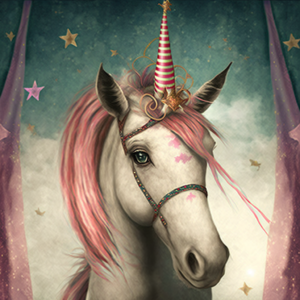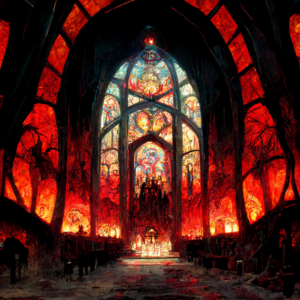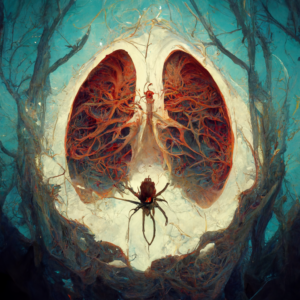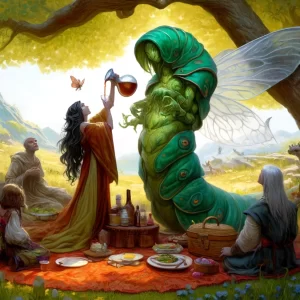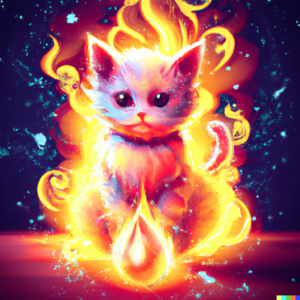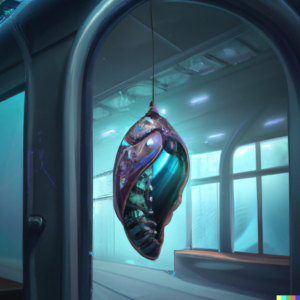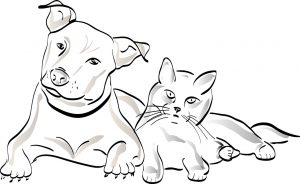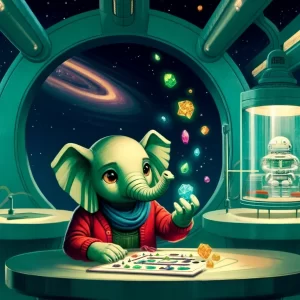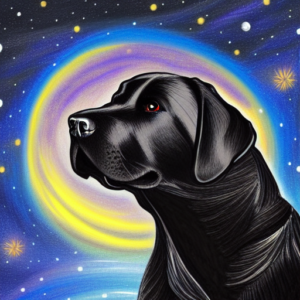by Mary E. Lowd
Originally published in Daily Science Fiction, April 2020
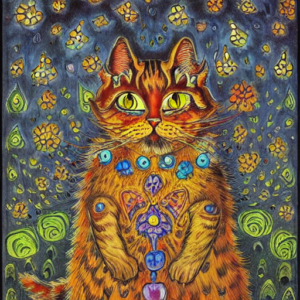
Catacomb laid her paw across the tiny heaving belly of the almost drowned mouse. The poor thing was frightened out of its mind; she could feel its fright through her paw, prickly and tingly. Mouse emotions were so funny.
“I saved you from the koi pond, Little One,” Catacomb purred. “Now your life is mine.” Never mind that the mouse would never have fallen in the koi pond if Catacomb hadn’t been chasing it. She could see herself through the mouse’s eyes: massive, terrifying, death-personified. The asymmetrical orange and black splotches that had inspired her human to name her Peaches (after a bowl of peach cobbler) looked like a devastating Halloween mask to the mouse. No sweetness. All murder. Continue reading “Catacomb’s Orchestra”

